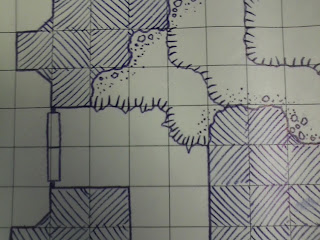>>DYNAMICS IN OUR FIELD OF WOMEN’S STUDIES: NOTHING STAYS STILL
Tuesday 29 October, KATIE AT UPENN, YOU RUN THE CLASS!
· Berger and Radeloff, all of Section 2 (Chs 3 & 4)
Thursday 31 October, KATIE AT UPENN, YOU RUN THE CLASS!
· Berger and Radeloff, all of Section 3 (Chs 5 & 6). You have finished the book!
For this whole week, with the aid of some class facilitators, you will run both classes yourselves. You will finish up the Berger and Radeloff book and talk about it and the issues it raises or speaks to in ways most meaningful to you all collectively. Working together without the teacher is a special activity: may it be especially enjoyable! If you like you can also use this time to look ahead to Workshop #2 as well!
===
And where was Katie while you all were meeting? At Queer Method at the University of Pennsylvania.
Katie's talksite is here: http://fembooo.blogspot.com/p/slides-and-handout.html
Look at her slide show!
===
Tuesday 5 November, Make it all alive! These are people! How do you come to care about them?
· From the three sections of Berger we have not yet read (II, III, IV), choose one section that interests you, and three (or more) articles from that section. NOTE DATES OF PUBLICATION and include on timeline/s!
· LOOK UP THE THREE AUTHORS ON THE WEB and bring in some stories you can figure out about them as people.
Scholarly collections can be exciting, and they can be a bit dry. How do we make them alive and connect with the folks who write for them? What are these authors careabouts, and how do they intersect with your own?
Make timelines for everything! You are welcome to customize this Word Template (version handed out earlier), or make your own in any format! Bring these in to share! Posters are good!
Thursday 7 November, Not just words on a page! People live in worlds! Connect yours here too!
· From the three sections of Hewitt, choose one section that interests you, and three (or more) articles from that section. NOTE DATES OF PUBLICATION & include on timeline/s!
· LOOK UP THE THREE AUTHORS ON THE WEB and bring in some stories you can figure out about them as people in particular worlds.
This is a book about histories and how the past looks different at different times to different people. What experiences have you had with pasts with meanings that changed? How do the folks here you looked at change pasts and why? What worlds do they inhabit and why does that matter?
REMEMBER OUR WEB AUTHOR PACKETS! BRING IN AS MANY AS YOU CAN, BUT ESPECIALLY FOR THE ARTICLES YOU READ IN BOTH COLLECTIONS!
===
















